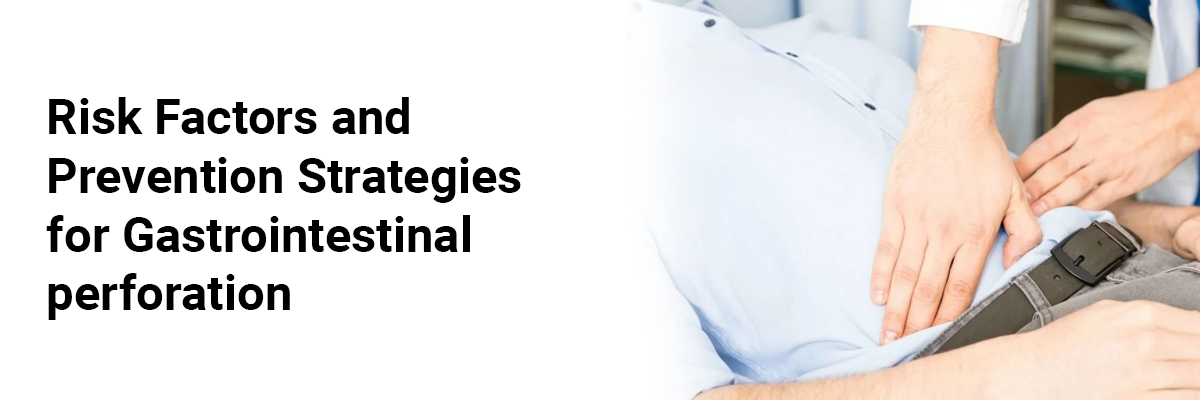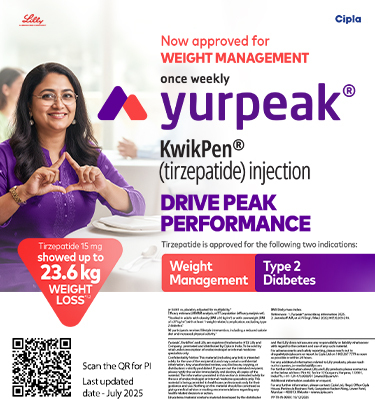
 Mrs. Mayuri Mathur
Mrs. Mayuri Mathur
Risk Factors and Prevention Strategies for Gastrointestinal Perforation
Gastrointestinal perforation is a severe medical condition characterized by a hole or rupture in the wall of the gastrointestinal tract. It can occur in various parts of the digestive system, including the stomach, small intestine, or large intestine. Gastrointestinal perforation requires immediate medical attention, which can lead to severe complications and even be life-threatening.
The symptoms of gastrointestinal perforation can vary depending on the location and severity of the perforation. Common signs and symptoms include:
• Sudden and severe abdominal pain, which may be localized or diffuse.
• Abdominal tenderness and rigidity upon touch.
• Nausea, vomiting, and difficulty passing gas or having bowel movements.
• Fever, increased heart rate, and signs of systemic infection in more severe cases.
• Signs of peritonitis include a rigid abdomen, guarding, rebound tenderness, and a distended abdomen.
Risk Factors for Gastrointestinal Perforation
Gastrointestinal perforation can result from a combination of intrinsic and extrinsic factors. Understanding these risk factors is crucial for identifying individuals more susceptible to this condition. The following are some significant risk factors:
Digestive Disorders: Peptic Ulcers and Inflammatory Bowel Diseases such as Crohn's disease or ulcerative colitis can weaken the intestinal walls, increasing the risk of perforation in the stomach or duodenum. Inflammation or infection of the diverticula (small pouches that develop in the colon) can also lead to perforation.
Gastrointestinal Surgeries: Individuals who have undergone abdominal surgeries, especially involving the gastrointestinal tract may have scar tissue or weakened areas prone to perforation. In addition, chronic or recurring bowel obstructions can increase pressure on the intestinal walls, making them more susceptible to rupture.
Trauma or Injury: Severe blows or injuries to the abdomen, such as those resulting from falls or accidents, can cause gastrointestinal perforation. Traumatic events like car accidents can result in wounds that perforate the digestive organs.
Medications: Prolonged and high-dose use of NSAIDs, such as aspirin or ibuprofen, can increase the risk of peptic ulcers and subsequent perforation.
Lifestyle Factors: Tobacco use has been linked to an increased risk of peptic ulcers and delayed ulcer healing, which can predispose individuals to gastrointestinal perforation.
The other factors that may lead to gastrointestinal perforation are:
• Accidentally ingesting a hazardous object or substance, such as batteries, corrosive chemicals, magnets, or sharp objects, can tear the esophagus, stomach, or intestines.
• Bowel impaction, which occurs when a significant accumulation of stool becomes stuck in the colon, can also cause gastrointestinal perforation.
• Forceful vomiting
• Knife or gunshot wounds to the abdomen or torso
• Medical procedures that involve the gastrointestinal tract, such as colonoscopies, carry a slight risk of perforation.
Prevention Strategies for Gastrointestinal Perforation
While some risk factors for gastrointestinal perforation may be beyond an individual's control, certain preventive measures can help reduce the likelihood of its occurrence. Here are key prevention strategies:
Maintain Good Digestive Health: Several simple lifestyle habits can contribute to a healthy digestive system. First and foremost, adopting a balanced diet rich in fiber, fruits, vegetables, and whole grains promotes regular bowel movements and prevents constipation. It is essential to stay hydrated by drinking adequate water throughout the day, as proper hydration supports optimal digestion. Limiting the intake of fatty or greasy processed foods can also improve digestive health. Excessive alcohol intake can increase the risk of gastrointestinal complications, including ulcers. Hence, alcohol intake should be limited. Healthy diet in conjugation with regular exercise aids in maintaining a healthy weight and improving digestion. Also, managing stress levels through relaxation techniques, yoga, or meditation can positively impact digestive function. Digestive health supplements may also contribute to stomach health and a healthy digestive system.
Proper Medication Use: certain medications, such as NSAIDs and anticoagulants, may trigger gastrointestinal disorders. If long-term use of NSAIDs is necessary, it is important to take them under medical supervision, adhering to the prescribed dosage and duration. Co-prescription of protective medications, such as proton pump inhibitors, may be considered for individuals at higher risk. Patients taking blood-thinning drugs should follow the recommended dosage closely and have regular check-ups to monitor potential gastrointestinal complications.
Manage Digestive Disorders: Individuals with conditions like peptic ulcers, diverticulitis, or inflammatory bowel disease should strictly adhere to treatment plans prescribed by healthcare professionals. Seek prompt medical attention and report any worsening symptoms, such as severe abdominal pain or blood in the stool, to a healthcare provider for timely diagnosis and treatment.
Preventive Screening and Vaccination: Regular screenings, such as colonoscopies, can help detect and treat precancerous growths or abnormalities in the colon, reducing the risk of gastrointestinal perforation. Appropriate vaccinations, such as for hepatitis A and B, can help prevent infections that may lead to liver-related complications and subsequent gastrointestinal perforation.
Conclusion
Gastrointestinal perforation is a serious condition that requires prompt medical intervention. By maintaining good digestive health, using medications judiciously, managing digestive disorders, and undergoing appropriate screenings and vaccinations, individuals can take proactive steps to safeguard their gastrointestinal well-being. Understanding the risk factors associated with gastrointestinal perforation and implementing preventive strategies can significantly reduce the likelihood of its occurrence. It is essential to consult with healthcare professionals for personalized guidance and to address any specific concerns related to gastrointestinal health.

Mrs. Mayuri Mathur
Mrs. Mayuri Mathur is a Senior Medical Writer (Patient education and digital) and seasoned content creator with a rich tapestry of expertise spanning over ten years. With a diverse background in content creation, she brings a wealth of experience to the table, from crafting insightful medical articles to developing comprehensive patient education materials, dynamic press releases, and captivating brochures and website content. Throughout her illustrious career, she has demonstrated an exceptional knack for distilling complex medical concepts into easily understandable content, making her a trusted resource for both professionals and lay audiences alike. Her meticulous attention to detail and innate creativity have enabled her to deliver content that not only informs but also engages and inspires. Whether elucidating intricate medical procedures or crafting compelling marketing materials, her versatility and dedication shine through in every project she undertakes. Her passion for writing, coupled with her profound understanding, makes her an invaluable asset to any team or project. In a constantly evolving digital landscape, where effective communication is paramount, Mrs. Mayuri Mathur stands out as a beacon of excellence, consistently delivering top-notch content that resonates with audiences across diverse platforms.

.png)

.png)
.png)


.jpg)








.jpg)


Please login to comment on this article